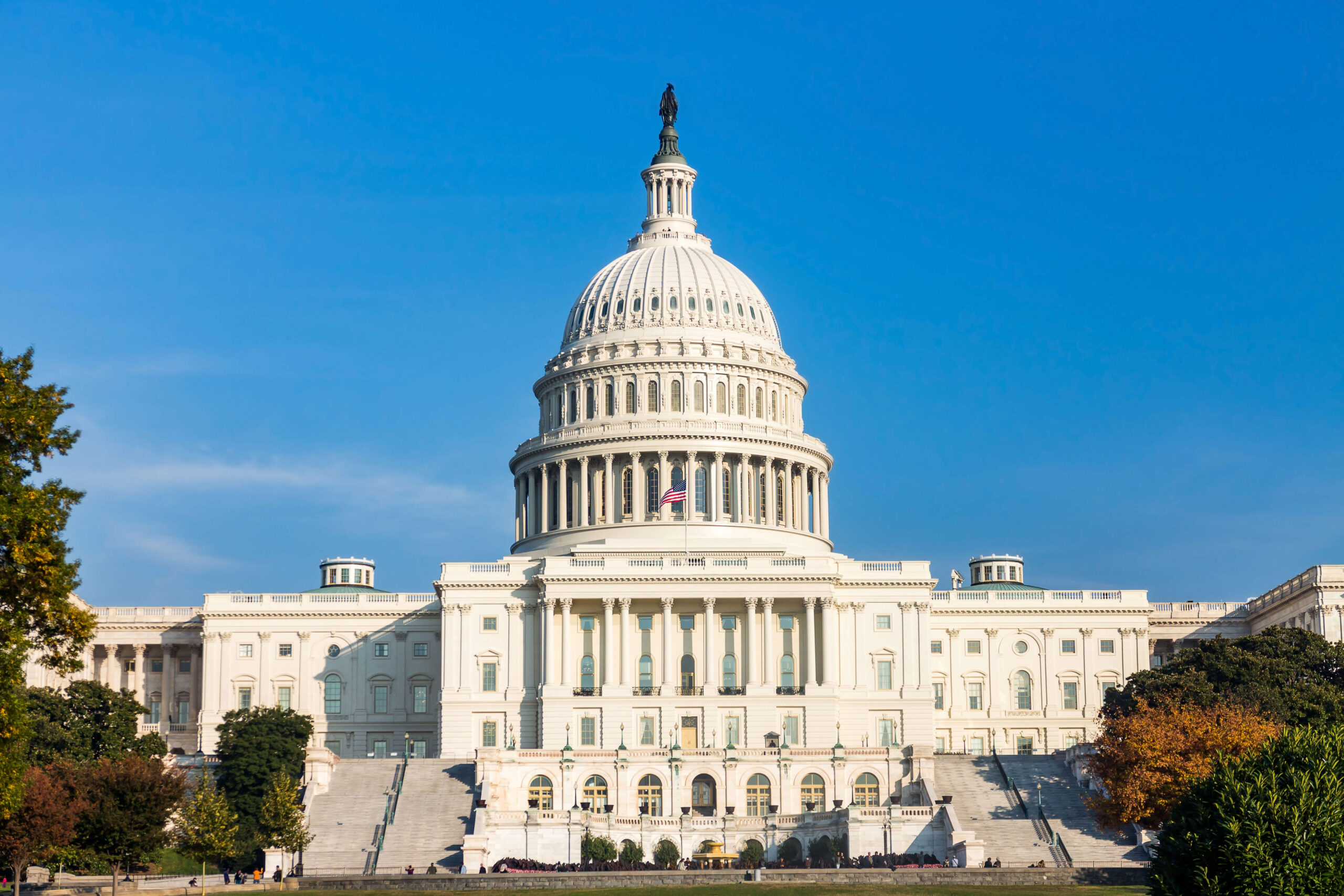The 2022 Midterm Election Results Are In! Sort of. The midterm elections are over, but we still do not know who will be in control of the 118th United States Congress. The predicted “red wave,” by which Republicans were expected to flip control of the U.S. Senate and gain a double-digit majority in the U.S. House of Representatives, did not materialize this week. Instead, at week’s end, control of the U.S. Senate remains uncertain (vote tabulation continues in Arizona and Nevada), though Republican gains in the House are projected to achieve a tight majority in the lower chamber. As with the 2020 elections, control of the Senate may be decided by a runoff election in Georgia. Here is what this all means:
- Divided government returns. Divided government in Washington, D.C., is nothing new. In recent years, the 112th (2011–2013), 113th (2013–2015), 114th (2015–2017), and 116th (2019–2021) Congresses were all periods of divided government. While major legislation can still be enacted during such intervals (see the CARES Act, for example), divided government generally means that we can expect a period of legislative gridlock. Legislative initiatives addressing immigration, paid leave, LGBTQ rights, as well as the Protecting the Right to Organize (PRO) Act, are unlikely to gain any political traction in the next two years. Not surprisingly, for the administration, the results of the midterm elections will likely lead to a reemphasis on the use of regulatory and executive authority to make policy.
- A slim majority in the House. The Speaker of the House—whoever that may be—will have a challenging time getting legislation passed. Two-hundred-plus members are unlikely to see eye to eye on every issue, and keeping those various caucuses and factions happy will be a difficult task. Aside from politics, real-world logistical issues—such as members who are away on travel, at home sick, or who might die (five members of the current Congress passed away while in office)—create situations that might make passing a bill an especially arduous chore.
- House oversight. While it might make it hard to legislate, even a slim majority means that Republicans would hold the gavels in the various House committees. They would set the legislative agenda and undoubtedly use their oversight authority to conduct investigations into the administration’s policies and practices. The president’s family, the U.S. Department of Justice, and the situation along the southern border are just a few examples of issues on which Republicans would likely shine a spotlight. In the labor and employment space, Republicans would likely investigate ongoing rulemaking relating to independent contractor and joint employment status at the U.S. Department of Labor (DOL) and National Labor Relations Board (NLRB), respectively. Republicans would also likely flood the DOL, NLRB, and U.S. Equal Employment Opportunity Commission (EEOC) with written requests for information and invitations to testify on Capitol Hill.
- Senate advice and consent. While major legislation might be off the table for a while, both Democrats and Republicans are still desperate to be in the Senate majority. This is due in large part to the upper chamber’s constitutional advice and consent function. Democrats want to control the process so they can usher through and confirm the president’s nominees to federal agencies and the federal bench. Conversely, Republicans want the power to slow down or stop the president’s nominees, or otherwise negotiate for nominees that they believe are more acceptable.
- Lame-duck legislating. Before we start thinking too far ahead into 2023, there is still the “lame duck” session of Congress that will kick off next week and run through approximately the end of the year. When Congress returns, its legislative priorities will be avoiding a shutdown of the federal government (funding expires on December 16, 2022) and funding the military. In addition to tracking these bills, the Buzz will be watching to see if the Pregnant Workers Fairness Act will be brought to the Senate floor.
NLRB Proposes to Repeal Election Protection Rule. The NLRB continues its efforts to unwind Trump-era initiatives in order to tilt the labor-management policy landscape in favor of labor unions. On November 4, 2022, the Board issued a proposed rule that it is calling the “Fair Choice and Employee Voice” rule. The proposed rule would rescind the Trump-era Board’s “Election Protection Rule” that established new policies relating to “blocking charges,” employer voluntary recognition, and Section 9(a) recognition in the construction industry. If the rule is finalized as proposed, unions would be able to block decertification elections by filing unfair labor practice charges, and employees’ access to secret-ballot elections would be limited. Comments are due by January 3, 2023, and reply comments are due by January 17, 2023. Harry J. Secaras and Zachary A. Pestine have the details.
Thank You, Veterans. Veterans Day can be traced to the interment of an unidentified American service member who died in World War I and to the dedication of the Tomb of the Unknown Soldier at Arlington National Cemetery on November 11, 1921. Soon after, annual memorial ceremonies honoring American veterans would occur throughout the United States. The date, November 11, was chosen to commemorate the Armistice of November 11, 1918, which ended World War I. (The Armistice took effect at the eleventh hour of the eleventh day of the eleventh month of the year.) Through a resolution issued in 1926, Congress officially recognized the day as “Armistice Day.” Following World War II, some veterans began to refer to Armistice Day as “Veterans Day” in order to honor all veterans, not just those who served in World War I. Recognizing this, Congressman Edward Rees of Kansas introduced a bill to officially designate November 11 as “Veterans Day.” President Dwight D. Eisenhower signed the bill into law in 1954. The Uniform Monday Holiday Act of 1968 temporarily moved the observance of Veterans Day to the fourth Monday in October, but in 1978 the holiday’s date was changed back to November 11 to reemphasize the date’s historic significance.





